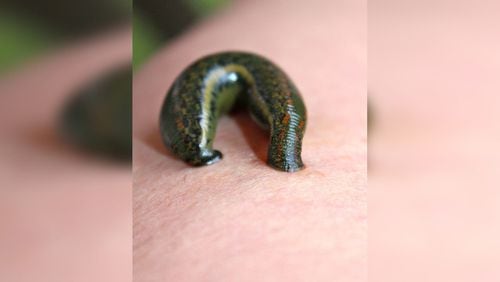For the first time in 40 years, scientists have discovered a new species of medicinal leech in North America in a Maryland swamp.
A team of researchers made the discovery in 2015 and published their findings in the Aug. 15 edition of the Journal of Parasitology.
The new bloodsucker, named Macrobdella mimicus, is olive green with orange spots and measures almost 4 inches long, according to Smithsonian magazine. It has three jaws with each containing almost 60 teeth and can suck up to five times their body weight in med blood. The study's lead researcher, Anna Phillips, is the curator of parasitic worms at the Smithsonian National Museum of Natural History in Washington.
"We found a new species of medicinal leech less than 50 miles from the National Museum of Natural History -- one of the world's largest libraries of biodiversity," Phillips said, according to WTOP-TV.
“A discovery like this makes clear just how much diversity is out there remaining to be discovered and documented, even right under scientists’ noses,” she said.
While researchers discovered the leech in Maryland, the new parasite lives in swamps and marches primarily between the Appalachian Mountains and the Atlantic Coast.
Phillips said as she looked closer at the museum’s own collection, she realized the new leech had been there the whole time.
"All of a sudden, I started finding these things everywhere," Phillips said, according to WTOP.
Leeches are parasitic worms and were once used by doctors in the 1700s and 1800s to treat fevers and headaches by "ridding the patient's body of 'bad blood,'" The Washington Post reported, citing the Smithsonian. There are more than 650 species of leeches worldwide.






